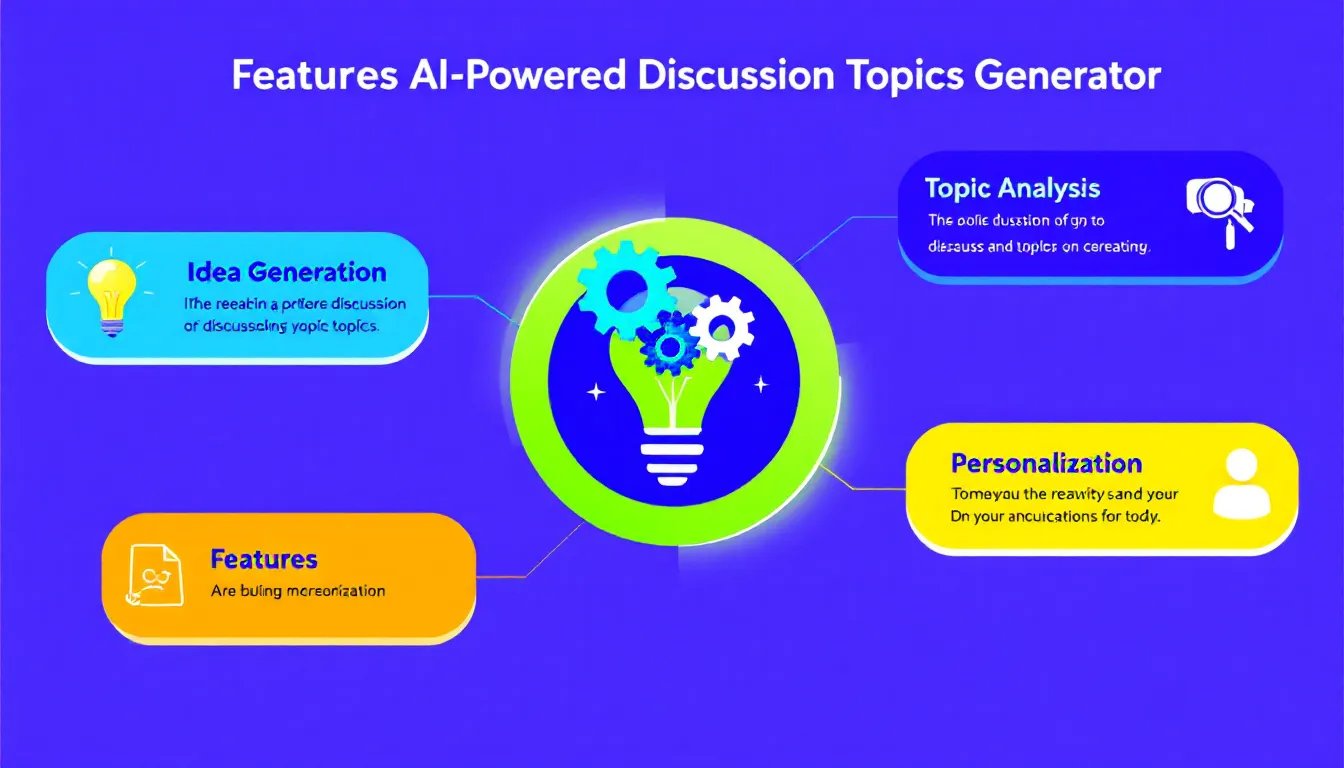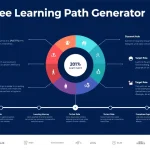Is this tool helpful?
How to Use the Discussion Topics Generator Effectively
You can generate engaging and relevant discussion topics for your courses quickly by following these simple steps:
- Enter the main subject: Type the key field or subject area you want to explore. For example, you might input “Cybersecurity Fundamentals” or “Modern Art Movements”.
- Specify the audience level (optional): Select the knowledge level of your audience to tailor the topics accordingly. Options include “Novice”, “Intermediate”, or “Expert”.
- Set the number of topics (optional): Choose how many discussion points you want, ranging from 1 to 10. For instance, enter 4 or 7 to generate that many topics.
- Add specific focus areas (optional): Narrow the scope by listing particular aspects related to the main subject, such as “Phishing Attacks” or “Cubism Techniques”.
- Generate topics: Submit the form to receive a tailored list of discussion ideas that fit your criteria.
- Review and copy: Review the generated topics and copy them easily for integration into your course materials or lesson plans.
What Is the Discussion Topics Generator and How It Benefits You
The Discussion Topics Generator is a practical AI-powered tool that creates relevant and stimulating discussion ideas tailored to your course subject and audience. It helps educators, trainers, and facilitators craft meaningful conversations without spending hours brainstorming.
By using this tool, you save time while ensuring your discussion topics encourage critical thinking, interactive learning, and deeper understanding of the subject matter. The generated topics suit varying knowledge levels and specific interests within your main field.
Key Benefits of the Tool
- Generates multiple relevant discussion topics quickly based on your inputs.
- Customizes topics for your audience’s expertise, making content accessible and engaging.
- Supports narrowing down topics to specific subfields or focus areas.
- Produces fresh ideas drawing from current trends and broad knowledge domains.
- Facilitates active learning by encouraging diverse perspectives and deeper analysis.
Practical Uses of the Discussion Topics Generator
This tool fits a broad range of educational and professional settings. Here are some examples showing how you can use it:
1. University Courses and Seminars
- Generate weekly seminar questions for topics like “Renewable Energy Technologies” or “Philosophy of Science”.
- Create prompts that explore ethical, scientific, and societal implications of these subjects.
- Engage students with questions such as, “How do advances in wind turbine design impact energy policy?”
2. Corporate Training and Workshops
- Design discussion topics for sessions on “Remote Team Leadership” or “Data Privacy Regulations”.
- Enable participants to reflect on real-world challenges and share best practices.
- Example question: “What strategies help maintain trust in virtual teams despite reduced face-to-face interaction?”
3. Online Courses and eLearning Platforms
- Support online forums with targeted questions tailored to subjects like “Blockchain Technology” or “Creative Writing”.
- Encourage learners to discuss major concepts, emerging trends, and practical applications.
- Sample topic: “What are the potential impacts of blockchain on supply chain transparency?”
4. Professional Development and Lifelong Learning
- Generate conversation starters for workshops on “Sustainable Business Models” or “Effective Negotiation Techniques”.
- Help professionals reflect on industry challenges and innovative solutions.
- Example prompt: “How does adopting circular economy principles affect business profitability and brand reputation?”
5. Community Groups and Book Clubs
- Create questions for discussion on diverse topics such as “Cultural Heritage” or “Classic Literature”.
- Encourage participants to share personal insights and interpret themes deeply.
- Sample question: “How do the themes of identity and migration in the novel relate to today’s social dynamics?”
Important Disclaimer
The calculations, results, and content provided by our tools are not guaranteed to be accurate, complete, or reliable. Users are responsible for verifying and interpreting the results. Our content and tools may contain errors, biases, or inconsistencies. Do not enter personal data, sensitive information, or personally identifiable information in our web forms or tools. Such data entry violates our terms of service and may result in unauthorized disclosure to third parties. We reserve the right to save inputs and outputs from our tools for the purposes of error debugging, bias identification, and performance improvement. External companies providing AI models used in our tools may also save and process data in accordance with their own policies. By using our tools, you consent to this data collection and processing. We reserve the right to limit the usage of our tools based on current usability factors.







